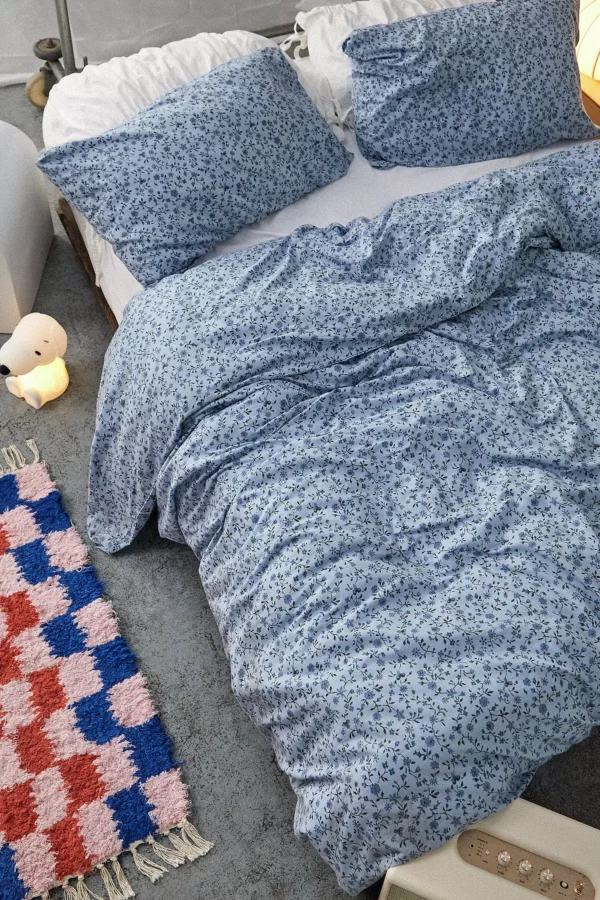
From Fidgeting to Switching Your Phone Off: The 11-Interview Dos and Don’ts You Should Know

Interviewing for a new job can be a daunting and nerve-wracking experience that pushes us out of our comfort zones. In fact, research shows 93% of people admit to having job interview anxiety at some point.
So if you have a job interview coming up, it’s perfectly normal to feel nervous. But fear not! Ed Johnson, CEO of PushFar, one of the world’s leading online career progression platforms, has rounded up the ultimate list of interview dos and don’ts, so that you can make a great first impression and bag your dream role.
Interview do’s
1. Do your research
When it comes to interviews, one of the most common questions that may come up is ‘what do you know about the company?’ or ‘what can you tell us about our company?’.
A common mistake people make is not actually conducting research into the organisation beforehand. To show the interviewer that you’re truly interested in the role and have a greater understanding of the organisation, ensure you take time to research the company.
Consider your prospective employers’ competitors, recent news articles the organisation has been featured in, and the industry itself. By doing this, you’re giving yourself the upper hand whilst standing out from other possible candidates.
2. Switch your phone off
It’s an easy one to forget when you’re full of nerves, but there’s nothing more awkward and distracting than having your phone ring during your interview.
Make sure to switch it to airplane mode before you step into that meeting room.
3. Ask questions
Interviews are also about making sure you feel you’d also be a great match within the company’s culture and if you could imagine yourself working there. Make sure to ask open-ended questions, to gain deeper insight into the organisation.
This will also indicate to the interviewer that you’ve taken the time to think about the role and show your clear interest in the organisation as a whole.
4. Bring a notepad and pen
Make sure to bring a notepad that you can take notes on during the interview with any important information you may need after the process.
If you’re interviewing for multiple roles, this can help you to weigh up the pros and cons, by jotting down key points that are mentioned in the interview.
5. Follow up afterwards
Whilst following up after an interview is something that many of us feel uneasy about, it’s a great method to use.
The follow up email shouldn’t be a novel as to why you’re the perfect candidate, it should include a thank you to the interviewers for taking the time whilst communicating your gratitude. It’s also the ideal time to ask any other questions you may have in mind, representing your enthusiasm for the role and your passion to join the organisation.
6. Remember the interview is as much about them as it is you
Interviews are all about selling yourself and putting on your best face. However, the company you’re interviewing for should be doing the same. An interview is a two-way process and the interview should also be doing their best to attract you to the role.
If you don’t like the sound of the job, whether it’s the responsibilities or the organisation’s culture, remember you can walk away.
Interview Don’ts
1. Speak badly about old employers
When it comes to speaking about your work experiences, you must refrain from speaking poorly about previous colleagues or employers, no matter what the circumstances are.
Speaking negatively will leave them wondering if you would do the same to them and question your professionalism. For example, you may be asked why you want to leave your existing role, and although it may be down to a toxic working environment, you can use other examples such as career progression or lack of creative freedom.
2. Be late
Preparation is key, leave zero to chance. When it comes to interviews, make sure you depart 15-30 minutes early to allow for things such as traffic, poor directions or other problems.
Being late to an interview is one of the biggest red flags seen by an employer, as it shows that you have insufficient time management skills, a skillset that many employers value.
However, life happens, and if you do find yourself being late for an interview and still want to keep a great first impression, make sure you contact the interviewer letting them know the circumstances and your estimated time of arrival.
3. But also, don’t be more than 15 minutes early!
While you definitely don’t want to be late, you also don’t want to arrive too early either. Aim to get there 10-15 minutes before the interview starts, however, if you arrive earlier than this then make sure to find a local café where you can kill some time.
4. Fidget
While a lot of us are guilty of fidgeting when we’re nervous, try to avoid this in an interview as it doesn’t portray confidence.
Instead, sit up straight and look your interview in the eye. And if you feel like you need to do something with your hands to keep the nerves at bay – hold your pen, ready to scribble notes.
5. Lie to the interviewer
There’s no denying that over the years we’ve all told a white lie or two, but when it comes to interviews, lying is something that many interviewees can actually see straight through it.
Embellishing the truth may seem alluring, especially if it’s a position you really want, but it won’t do any good in the long-term success of your career. Your interviewer may check back on your background or get in touch with prior employers, either way, if you lie, it might come to light later down the line.
For more career tips, visit www.pushfar.com













































